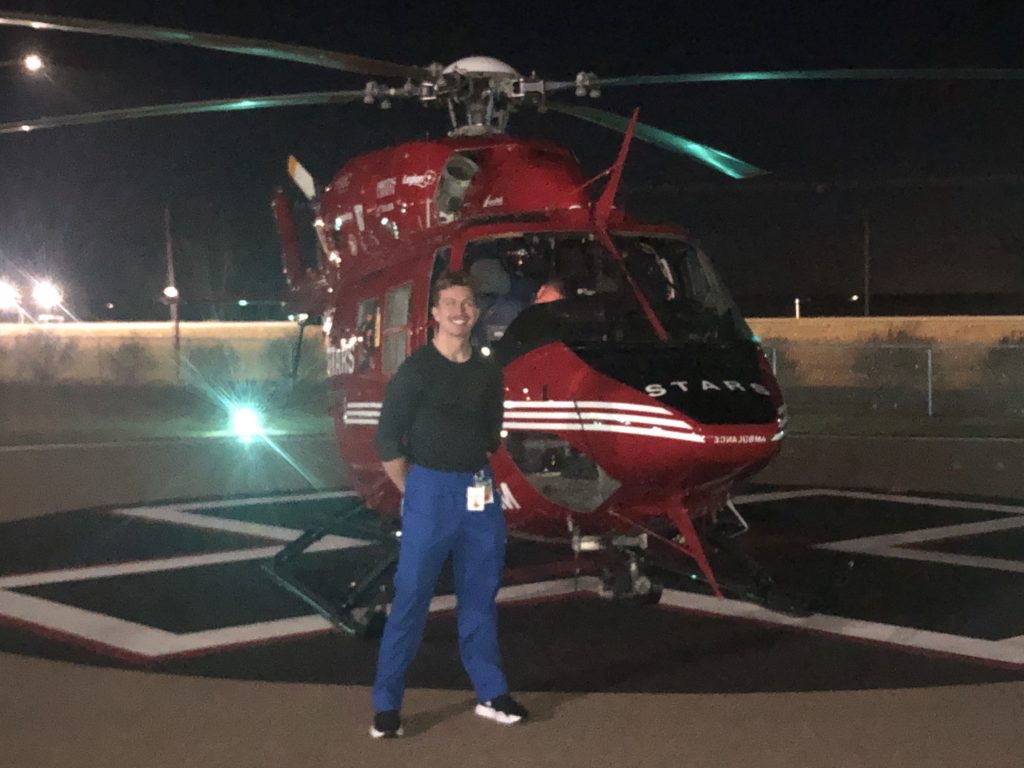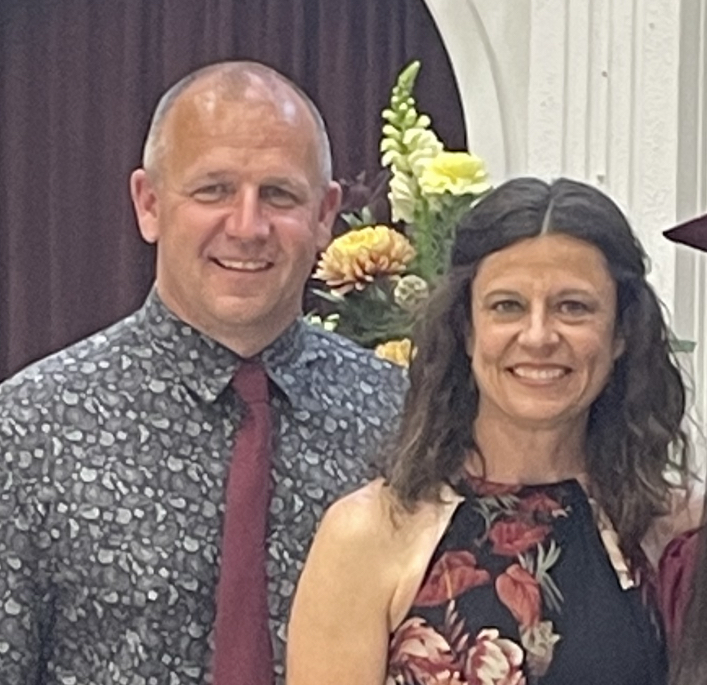For nursing students, rural placements are exciting educational opportunities.
However, for those with no local connections, it can be stressful to find short-term accommodation while training in rural communities.
Stressed was just how nursing student Simon Weidemann felt, as his placement in Wetaskiwin grew near.
Weidemann was unable to find temporary accommodation in the community south of Edmonton until a local couple opened their door and invited him into their home.
“It was actually very welcoming, and it made the transition to living in a different [community], much easier and more comfortable for me,” shared Weidemann, a fourth-year bilingual Bachelor of Science in Nursing student at Campus Saint-Jean, a French-language multidisciplinary faculty at the University of Alberta.
“I didn’t really see them that much, because when you’re working 12-hour shifts and they’re working during the day, you really only have a small period of time for seeing [each other]. But they were always in close contact with me. If I needed anything, they were only a text away,” Weidemann said of Chuck and Lilly Hebert, the couple who hosted him during his seven-week stay in the community.

– Photo supplied by Simon Weidemann
For the Heberts, who both teach in Wetaskiwin, this wasn’t the first time they hosted a visiting student who faced challenges finding housing.
Years earlier, the family welcomed a student from Belgium, an experience that continues to inspire them to open their door to other opportunities.
“We [did] it to help someone out,” said Lilly Hebert of welcoming Weidemann into their home.
“We have the space, because our kids just [moved out], and I think [the opportunity] gives us an appreciation for where they’re at in their lives.”
“Simon and I shared some conversations, and it was kind of cool to hear his [take] on stories [about health care], especially relating to our education system,” she continued. “It’s just neat to share some of our stories and backgrounds.”
One background the Heberts share with Weidemann is their connection to the French language, an aspect that wasn’t expected, but added to the overall experience.
“They did speak a little bit of French, which kind of made me feel even more welcome, getting to practise bilingualism,” shared Weidemann, explaining that he’s always attended bilingual schools.
“I relate how well I performed during my [practicum] to having a kind, welcoming, and warm home,” he shared of his time with the Heberts.
“I [wasn’t] alone in the house, which made it a lot easier to transition [into the community] and made it much easier for me to mentally bear going to clinical [training] while living in a different [community].”
“I’m from a rural setting…. I know that the values of a rural community are to welcome people in and to integrate them into the community. What an amazing thing to be able to expose a student to, especially a student who’s lived in the city their whole life.”
– Claire Tellier, assistant teaching professor/coordinator of the bilingual nursing program at Campus Saint-Jean with the University of Alberta

– Photo supplied by Lilly Hebert
According to Claire Tellier, assistant teaching professor and coordinator of the bilingual nursing program at Saint-Jean, this personal connection can often be found in rural communities.
As she explains, many of their nursing students have experienced hospitality similar to Weidemann, through personal community connections or established through accommodations arranged by organizations such as RhPAP.
“This just highlights the value and the extensiveness of community networks in rural settings,” she said, highlighting that Bonnyville, Cold Lake, and Westlock are also communities where students have been welcomed.
“I’m from a rural setting….” said Tellier. “I know that the values of a rural community are to welcome people in and to integrate them into the community.
“What an amazing thing to be able to expose a student to, especially a student who’s lived in the city their whole life.”
